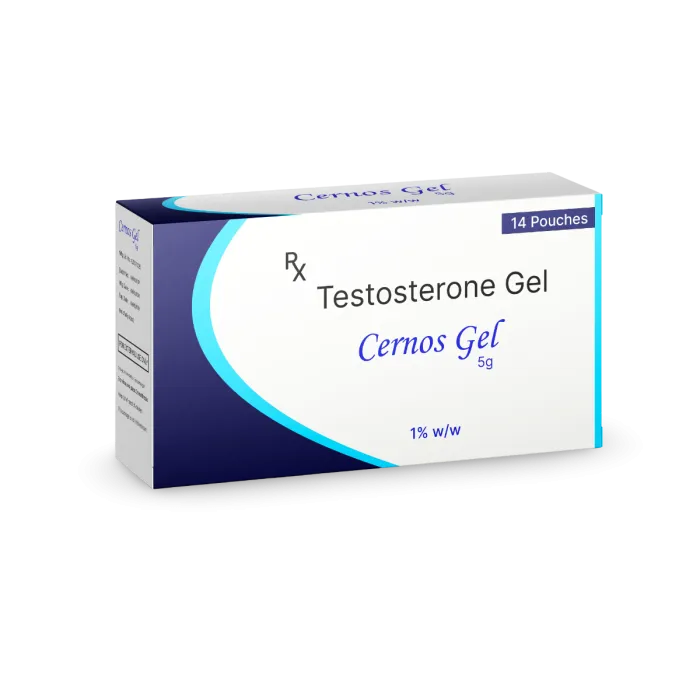Low Testosterone is a topic in health and wellness that has generated many misconceptions and attracted much attention.
Making informed health decisions and seeking proper therapies depends on understanding hormonal imbalances’ true effects.
Is low Testosterone bad? We will explore the impact of low Testosterone on physical and mental health and also debunk some common myths.
Let’s explore the effects of low Testosterone and separate fact from fiction to understand its impact on human health.
Is Low Testosterone Bad
It is unclear whether having low Testosterone has any negative impact directly on your health.
But, it’s important to note that Testosterone levels can vary greatly among individuals.
So, what is considered low for one person may be within the normal range for another.
Testosterone plays crucial roles in maintaining bone and muscle strength, regulating mood, and enhancing sexual performance.
When Testosterone levels fall below normal and symptoms appear, addressing the problem is important.
Also, it’s important to note that not everyone with low Testosterone experiences negative effects.
Although some individuals have naturally low Testosterone levels, and may not exhibit any symptoms.
The main focus is the overall impact of symptoms on quality of life and well-being.
Symptoms and Signs of Low Testosterone
 Source: lureccia
Source: lurecciaLow Testosterone can cause various physical and mental symptoms.
To understand the effect of this condition, one must first identify its symptoms and indications. Some common symptoms are:
Diminished Libido: According to a study, one of the most typical symptoms of low Testosterone is a decreased interest in sexual activities.
Fatigue and Low Energy Levels: Individuals with low Testosterone often experience fatigue and a lack of energy to complete daily activities.
Muscle Mass Reduction: To maintain muscle mass, Testosterone is crucial.
Decreased Testosterone levels may lead to a decline in muscular mass.
Mood Changes: Occasional sadness, mood changes, anger, and other negative emotions can be caused by low Testosterone levels.
Cognitive Changes: Difficulty concentrating and memory issues may arise in individuals with low Testosterone levels.
Erectile Dysfunction: Erectile Dysfunction may be caused by low Testosterone levels, leading to impaired sexual function and decreased confidence in men.
It is a common misconception that aging is the sole cause of decreased Testosterone levels.
Erectile Dysfunction can also affect younger people, and while low Testosterone may play a role, it is not the sole cause.
Supplements are often marketed as Testosterone pills, but their effectiveness is limited and should be used cautiously.
Also read Reviving Manhood: Understanding and Managing Low Testosterone Symptoms
Save up to 90% on your medicine bills

Cernos Gel 1%w/w

Cernos 40 Mg Soft Gelatin Capsule

Sustanon 250 Injection

Carmel Organics Ashwagandha Extract Tablets
Health Implications of Untreated Low Testosterone
 Source: Jittawit_21
Source: Jittawit_21Untreated low Testosterone can cause negative effects on health, like reduced muscle mass and bone density, cardiovascular health, etc.
Below, we have discussed the side effects in detail:
Reduced Muscle Mass and Bone Density: Weak bones and muscle loss caused by low Testosterone increase the risk of fractures and Osteoporosis.
Cardiovascular Health: Several studies have shown that low Testosterone levels are linked to cardiovascular problems, including an increased risk of heart disease.
Metabolic Effects: Research has found a correlation between low Testosterone levels, metabolic syndrome, insulin resistance, and an increased risk of Type 2 diabetes.
Mental Well-being: Low Testosterone levels can exacerbate mood disorders such as Anxiety and Depression.
It is crucial to seek medical assessment and treatment for low Testosterone to avoid negative consequences.
If you are looking for measures to treat low Testosterone,read A Comprehensive Guide to Low Testosterone Treatment
Conclusion
Making informed decisions about low Testosterone requires distinguishing truth from fiction.
Is low Testosterone bad? Maintaining hormone balance is crucial because low Testosterone can negatively impact health, even though it’s not naturally ‘bad.’
Identifylow Testosterone symptoms, and seek medical help for better health and quality of life.
Individuals can improve their hormonal health and lead fulfilling lives by understanding the true effects of low Testosterone and dispelling myths.

Frequently Asked Questions
Is low Testosterone inherently harmful?
Low Testosterone itself is not inherently ‘bad.’
Testosterone plays a vital role in several bodily functions.
However, when Testosterone levels drop significantly, it can lead to various symptoms that affect overall well-being.
What are the symptoms of low Testosterone?
Symptoms of low Testosterone may include reduced libido, fatigue, loss of muscle mass, increased body fat, mood changes, and cognitive difficulties.
Recognizing these signs is crucial for timely intervention.
Can low Testosterone affect mental health?
Low Testosterone can contribute to mood disturbances such as irritability, Depression, and Anxiety.
Addressing hormonal imbalances can positively impact mental well-being.
Are there any misconceptions about low Testosterone?
Yes, some myths surround low Testosterone, such as the belief that it’s universally harmful or that all symptoms are solely related to aging.
How does low Testosterone impact bone health?
Low Testosterone can reduce bone density, increasing the risk of fractures and Osteoporosis, especially in aging individuals.
Cheap Medicine Shop only refers to credible, authoritative sources for our content. If you’re curious about how we ensure the integrity of our content, we encourage you to read our Content Information Policy.














